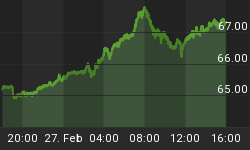
B.I.S. Swaps
Gold Forecaster has for years now pointed to gold's coming monetary role as collateral. We have never believed that a return to the Gold Standard was feasible in the form it was used in last century. We have never believed it would return as day-to-day money. We have always seen its return tied into its use on a global basis, most likely between governments, as we saw under the Bretton Woods system after the Second World War. We have always pointed to a time when it would return to a key monetary position in the global financial system.
Its use requires the skill to offer it as a final resort should all else fail and not as immediate unconditional repayment. In the last two years we've witnessed over 500 tonnes of gold used in gold/currency swaps, which were reversed last year. We think these swaps were linked to debt-distressed government loans. No public statements on this were made. Secrecy was thrown over the story, and the details were hidden from the public.
In the last year, the subject of using gold as collateral has come from politicians, hoping to use the country's family jewels to shore up holes they made. But a nation's gold is under their central bank and not available for political ends. Then, recently, the politicians were at it again, but this time addressing the matter of using it along the lines central banks are required to do -cvwhen all else fails.
Gold Backing the Eurobond
A draft paper of the European Commission has suggested that gold could be used as collateral for new Eurobonds. The rationale for any central bank holding gold is straightforward. It can be used as a source of capital if a currency is not redeemable or if a country falls out of favor with the international capital markets. Both India and Korea have used gold as collateral in the last 15 years. The arguments against any Eurozone constituent using gold as collateral currently are powerful. The move would smack of desperation and might even harm a country's ability to borrow, rather than help it. Also the European Central Bank is likely to frown on the idea. While we do not think Eurozone central bank gold will be used by any peripheral nation as collateral in the near term, the subject is on the table and being discussed.
The Precipitant
For it to move to the center of the table, the Eurozone sovereign debt/banking crisis will have to continue to degenerate further. After the failure of the German government bond auction this week, we may be closer than you think. When investors fail to buy all the German government bonds on offer, they're in essences saying that they believe that Germany will eventually be left holding Eurozone debt that is un-repayable. They're not prepared to back Germany on that basis. This is now a crisis for the entire Eurozone, not just the weaker nations.
With the failure of Germany's Bund auction this week, we saw yet another degenerating step to the Eurozone crisis. But this appears not to be about Germany itself, but about the Eurozone banking system that could drag in the major banks of the developed world. We're seeing European financial institutions being part of the gold liquidation process, not through gold sales, but increased gold leasing. This means that they lend gold to the market, which can then sell it for cash. The central and major banks then receive the benefit of easier borrowing on better terms and the eventual return of their gold. Bond issues and short-term funding have been seizing up as the unease over government bonds has spread to banks, which themselves are big holders of government bonds.
The initial reaction of us all is to say, "No, this can't be happening." It won't come to that. But step back five years -would you have believed we would go to where we are now? Go back a month -would you have thought that a German bond auction would have failed? So take this decay forward, and it be comes easy to see a situation that brings some order to the growing disorderliness we're seeing in the developed world's markets.
Initially, the price of gold has been pushed down as some institutions, investors, and traders push the gold price down. But these are sales of gold. Bear in mind the lessor of that gold will have to return it either from mining production or by buying it back in the market. It's most unlikely that the lessees will accept a cash settlement. Only gold will do. What may confuse some is the thought that collateral may mean sales of gold. It does not. The handing over of gold to a creditor may also not mean sales. If it's another central bank, such a forfeiture of gold may lead to the creditor's gold reserves increasing. Should a creditor opt to sell the gold he receives in the event of a default, current central bank buyers will leap at the chance to obtain bulk gold now. Russia's October purchases of 18.6 tonnes tells us how keen central banks are to buy.
Add to that the underlying strength of the gold price holding present levels as other markets fall, and you can see how even significant sellers are not panic sellers. So it doesn't look like the use of gold as collateral will lead to lower gold prices. But that needs to be understood fully to see just what effect gold as collateral will have on the gold price. It becomes more dynamic when we look closer at the subject...
Member's Only
When and How Will Gold Prices React to Gold as Collateral?
Get the rest of the report. Subscribe @ www.GoldForecaster.com and www.SilverForecaster.com















